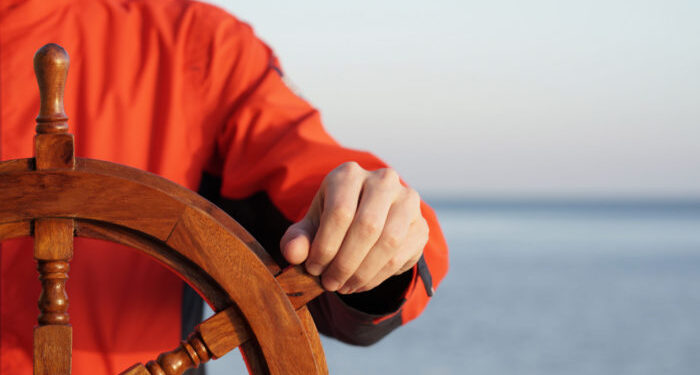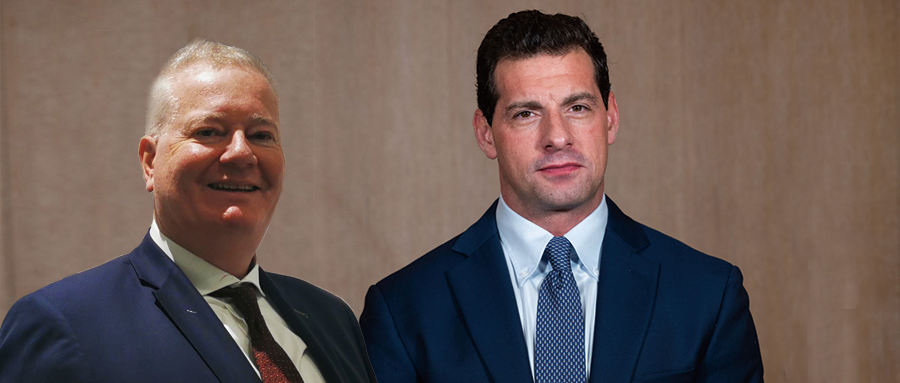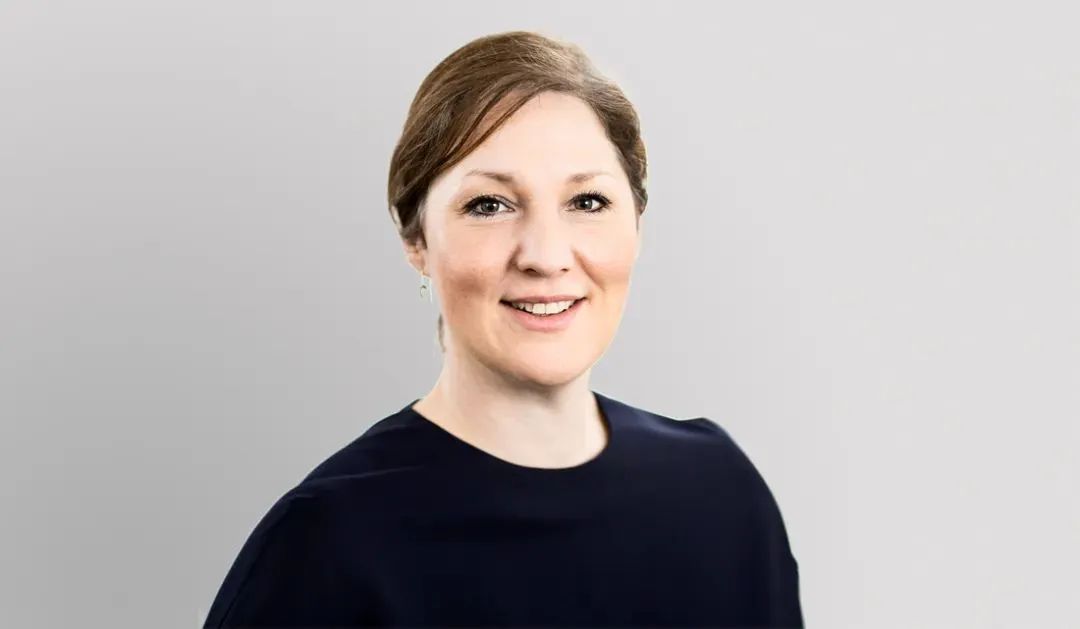I love loss prevention, mentoring people (walking with them to rose garden) and making a career out of it after sailing for 21 years. I am sure Companies, P&I clubs, H&M underwriters, and all other stakeholders love it too. People who look at the bottom line of the companies love it too, but that doesn’t motivate seafarers to prioritize loss prevention, implement safety leadership concepts, and enhance risk management on board. There has to be compelling reasons for humans to be convinced and follow policies and make it a movement.
Your family will love to see you return home safe after your tour of duty. It pays to put up a picture of your family in your cabin and remind yourself daily to ‘think safe and work safe’ for each and every task you do.
We love to think that accidents won’t happen to us and on our ship. I used to think the same too while sailing. However, the experience feedback and lessons learned from industry casualties are as good as gold and provide us with wonderful opportunities to gain experience from OPM (Other People’s Mistakes) and Experiences to think and behave more consciously. As we gather experience and do the tasks repeatedly, we tend to get overconfident or complacent to some extent.
I was fascinated with the concepts of many leadership gurus. I came across
Simon Sinek Inc. and loved his WHY. Once people understand the WHY, of anything, they will do the right thing and follow policies and procedures, which work for them.
The first beneficiary of loss prevention is none other than the seafarer or the front-line worker in any industry as they are the ones who gets hurt first when things go wrong, and not the CFO or others who have their eyes peeled on the bottom line and work in a non-industrial environment.
This is what people need to be convinced of to implement loss prevention - The WHY of every single action we ask people to do.
I used to present and talk about the various goodies on leadership in the Officers’ training seminars to transform the seafarers to leaders on the fleet, multiply leadership at all levels, and make the company achieve phenomenal success. In turn, the bottom line also gets better when the employees of the companies understand the WHY of HOW and WHAT they do.
I concur with Simon Sinek, that when people get up each day and are energized with the WHY of what they do, they don’t feel that they are working, but playing their passionate game.
That is what passion can do and make -Thank God It’s Friday- obsolete.
When we find our WHY and work on it, we enjoy what we do and don’t feel that we are doing work.
After all, if our dearest one needs to have a heart surgery, would we choose a doctor who is passionate of the work or who is working focused on the clock?
Or if we are flying, do we want to fly with a pilot who is passionate of flying or who is moaning about the workload? See what the pilot of Ryan Air, flying to Porto, Portugal did (
https://www.aviation24.be/air-traffic-control/nav-portugal/ryanair-pilot-averts-serious-incident-at-porto-airport/ ). They can take such commendable actions and avoid the loss of lives, only if they are Passionate of What they Do.
When experienced people get complacent, and blind to perceive risks, they pose an issue for themselves and others. Review this accident where an OS (30) collapsed in a cargo hold containing soya beans on 17 May 2022 on M.V Jupiter at anchor at Qinzhou, China. The ordinary seafarer died because of exposure to lethal levels of phosphine gas.
(https://safety4sea.com/wp-content/uploads/2023/06/BMA-MSI-Final-Report-Jupiter-Fumigant-poisoning_2022_05.pdf)
The deceased OS had 3 years' experience in rank, and the Chief Officer, who had to be treated for 13 days in hospital for full recovery, is a very experienced seafarer in his late 50s.
Though seafarers are aware of the hazards and danger warnings discussed and posted on board, overfamiliarity and recurring successful operations without any issues could make them complacent to varying degrees. In this fatal accident case described in the report on ‘Jupiter’, the crew may have been overconfident of the fact that Aluminum Phosphide fumigant sleeves were removed from the cargo holds and a gas-free certification was issued at previous port at Singapore within a week. The crew seem to have over-relied on the certification and risked their lives by entering the partly loaded cargo hold with voids, where the deadly phosphine gas was still present.
In-transit fumigation is carried out on board bulk carriers to comply with the rules and regulations of the country of the discharge port. Seafarers have to be extremely careful on voyage and don breathing apparatus while entering cargo holds, for whatever reason to stay alive, as several fatalities have occurred from in-transit fumigation.
Many a times, I have seen that the fumigant sleeves are collected from holds and left on the deck as shore-disposal is prohibited. This unsafe practice results in fire on board when the fumigants get wet with moisture or come into contact with rainwater/spray.
As I have seen in my personal experience and study of published reports of marine accidents, accidents tend to happen with very experienced people as they get overconfident and tend to lower their guard with practical knowledge gained over the years. In this talk posted on youtube (
https://youtu.be/xLscJS544qw), I talk about experienced people making more mistakes as they tend to lower their guard and take unsafe shortcuts knowingly without perceiving the risks of their actions. Accidents often happen to very experienced people if we analyze the high-profile accidents in the industry (
https://youtu.be/gER1zRjrhDw).
Despite the procedures and checklists of the Safety Management System to ensure safe outcome, seafarers need to realize that accidents don’t give notice and they have to be responsible for their own safety. When each and every person on board believe in ‘think safe and work safe’, they wouldn’t mind keeping their experience aside and observe all the precautions without taking any chance, as if they are doing that task for the first time.
Seafarers and their Managers could use the published accident reports for enhancing awareness and alertness in preventing a recurrence in the maritime industry. It is wise to learn from other people’s experiences and mistakes (OPM), rather than waiting for personal accidents or adverse experiences. Strict adherence to safety procedures and taking responsibility and accountability for each action is necessary irrespective of whether we like or believe in the procedures, whether we are at sea or on shore.
Discussing these published reports with the colleagues on board, raising concern with unsafe practices and breaching company policies would help to convince those who are less aware with the grave consequences from a casual attitude to safety.
Unless seafarers are taking responsibility for their safety and are consciously following safe working practices, it may not be possible to avert undesired events. Making slight shift in habits and actions will ensure safety of seafarers and shipping industry. Commitment to safety will assist in preventing accidents and enable seafarers to return to sea to pursue their career and livelihood.
Jay K Pillai is an ex-seafarer and served 21 years at sea and 24 years in Hong Kong managing ships and leading ship management and new building teams of Pacific Basin Shipping by inspiring people to leave people and places better than they found them.
He founded JP Maritime Ltd - https://www.jpmaritime.asia/ in 2021, after retirement to offer maritime consultancy and coaching. He writes blogs on his site - https://www.jaykpillai.com/blog on his passionate subjects, leadership, management, people development, loss prevention in shipping and also posts regularly on LinkedIn (https://www.linkedin.com/in/jay-k-pillai/) in his free time. He is enthusiastic of shipping and believes that accidents don’t need to happen with self-motivated seafarers who are conscious and intentional of the outcome of the tasks.
Our earlier articles on Jay K Pillai can be accessed here.
https://www.linkedin.com/posts/buhay-marino-0735b7121_buhay-marino-activity-6961164348190863360-_Wyt?utm_source=share&utm_medium=member_desktop
https://www.manilatimes.net/2022/08/17/business/maritime/successfully-navigating-bridge-to-boardroom-careers/1854825


 Ali Susanto joins SSY as Global Co-Head of expandin
Ali Susanto joins SSY as Global Co-Head of expandin  Robert Desai,CCO of V.Group: A new strategy is un
Robert Desai,CCO of V.Group: A new strategy is un  Mr. Hu Keyi: Ammonia is the most promising zero-car
Mr. Hu Keyi: Ammonia is the most promising zero-car  Global Maritime Consultants Group (GMCG) China appo
Global Maritime Consultants Group (GMCG) China appo  Stinne Taiger Ivø appointed Deputy Secretary Gener
Stinne Taiger Ivø appointed Deputy Secretary Gener  Johannah Christensen,CEO of the Global Maritime F
Johannah Christensen,CEO of the Global Maritime F